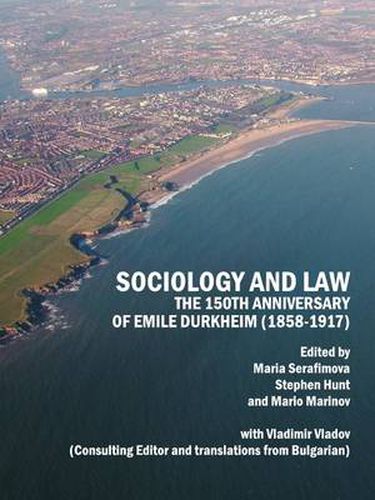Readings Newsletter
Become a Readings Member to make your shopping experience even easier.
Sign in or sign up for free!
You’re not far away from qualifying for FREE standard shipping within Australia
You’ve qualified for FREE standard shipping within Australia
The cart is loading…






Emile Durkheim’s conceptual framework outlined social reality as a moral social environment consisting of supra-individual norms for thought and action. Law, morals and other spheres of social order are generated within and by society. Law is a visible external symbol. Durkheim reaches the conclusion that penal law is religious in its nature. Most of the texts deal with the relations between Sociology and Law and refer to Durkheim’s heritage in dealing with specific problems in different societies and fields of study. Topics range from Socio-Legal Studies and Law, to analyses of constitutions, case studies from the judicial system and civil servants, new religious movements, Durkheim’s place in the Sociology of Religion. Other topics cover contemporary ethnic conflict, cyberspace, media, morality, education, gender studies, etc. This book will be of interest to sociologists, lawyers, anthropologists, historians, scholars in cultural studies, religious studies, students, researchers, etc.
$9.00 standard shipping within Australia
FREE standard shipping within Australia for orders over $100.00
Express & International shipping calculated at checkout
Emile Durkheim’s conceptual framework outlined social reality as a moral social environment consisting of supra-individual norms for thought and action. Law, morals and other spheres of social order are generated within and by society. Law is a visible external symbol. Durkheim reaches the conclusion that penal law is religious in its nature. Most of the texts deal with the relations between Sociology and Law and refer to Durkheim’s heritage in dealing with specific problems in different societies and fields of study. Topics range from Socio-Legal Studies and Law, to analyses of constitutions, case studies from the judicial system and civil servants, new religious movements, Durkheim’s place in the Sociology of Religion. Other topics cover contemporary ethnic conflict, cyberspace, media, morality, education, gender studies, etc. This book will be of interest to sociologists, lawyers, anthropologists, historians, scholars in cultural studies, religious studies, students, researchers, etc.